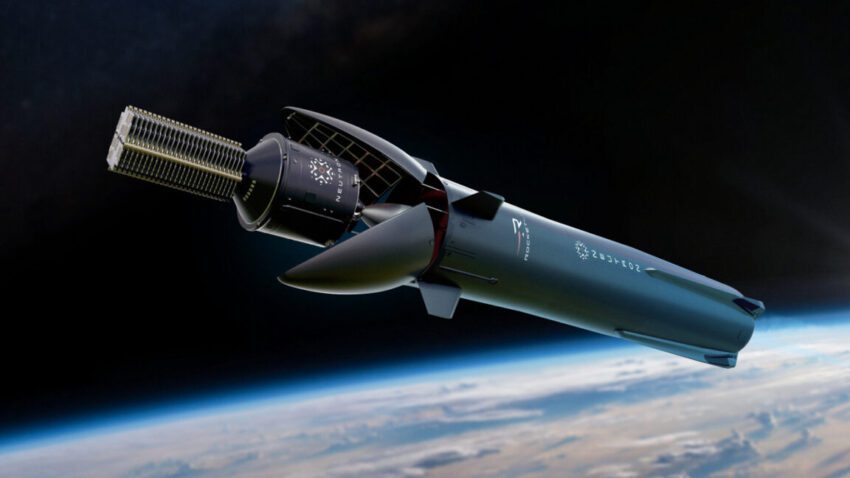
neutron rocket s debut slips into mid-2026 Rocket Lab has officially announced that the debut of its Neutron rocket will be postponed until mid-2026, as the company prioritizes a successful launch over meeting earlier deadlines.
neutron rocket s debut slips into mid-2026
Background on Rocket Lab and the Neutron Rocket
Founded in 2006, Rocket Lab has established itself as a significant player in the aerospace industry, particularly in the small satellite launch sector. The company’s Electron rocket has successfully completed numerous missions, demonstrating reliability and efficiency. However, as the demand for medium-lift launch capabilities has grown, Rocket Lab has shifted its focus to developing the Neutron rocket.
The Neutron rocket is designed to cater to a broader range of payloads, with the capability to lift up to 8,000 kilograms to low Earth orbit (LEO). This places it in direct competition with other medium-lift vehicles, such as SpaceX’s Falcon 9 and United Launch Alliance’s Vulcan Centaur. The Neutron’s design incorporates innovative features, including a reusable first stage and a unique carbon composite structure, which aims to reduce costs and enhance performance.
Details of the Delay
Announcement During Earnings Call
During an earnings call on Monday, Rocket Lab’s CEO, Peter Beck, revealed that the company would not be able to launch the Neutron rocket in 2025 as previously hoped. This announcement came as part of the third-quarter 2025 earnings report, where Beck provided insights into the company’s current status and future plans.
New Timeline for Launch
Beck outlined a revised timeline, stating that the Neutron rocket is expected to arrive at Launch Complex 2 at the Wallops Flight Facility in Virginia during the first quarter of 2026. Following its arrival, the company plans to conduct the first launch shortly thereafter. While specific dates have not been provided, the emphasis on a successful launch indicates that Rocket Lab is taking a cautious approach to ensure all systems are functioning optimally before proceeding.
Context of the Delay
The delay in the Neutron rocket’s debut is not unexpected for industry observers. Developing a new rocket involves numerous challenges, including engineering hurdles, regulatory approvals, and extensive testing. Rocket Lab had previously maintained an optimistic outlook regarding the launch timeline, but signs of a potential delay had been evident for some time. The decision to push the launch into 2026 reflects a strategic choice to prioritize reliability and success over speed.
Industry Implications
The postponement of the Neutron rocket’s launch has broader implications for the aerospace industry. As demand for satellite launches continues to rise, particularly with the increasing interest in satellite constellations for broadband internet and Earth observation, the competition among launch providers is intensifying. Companies like SpaceX and Arianespace are already well-established in the medium-lift market, and Rocket Lab’s delay may impact its ability to capture market share.
Moreover, the delay could affect Rocket Lab’s partnerships and contracts with satellite operators. Many companies rely on timely launches to meet their operational goals and commitments. If Rocket Lab cannot deliver on its promises, it risks losing potential customers to competitors who can offer more reliable timelines.
Stakeholder Reactions
Investor Concerns
Investors often view delays in launch schedules as red flags, as they can indicate underlying issues within a company. Following the announcement, Rocket Lab’s stock may experience fluctuations as investors reassess the company’s growth trajectory and market position. The emphasis on a successful launch may reassure some stakeholders, but the uncertainty surrounding the timeline could lead to increased scrutiny.
Customer Perspectives
For customers, the delay presents challenges. Satellite operators and other stakeholders who had anticipated utilizing the Neutron rocket for their launches may need to reevaluate their plans. Some may choose to seek alternative launch providers, while others may opt to wait for Rocket Lab to resolve its timeline issues. The company will need to communicate effectively with its clients to maintain trust and confidence during this period.
Future Outlook for Rocket Lab
Strategic Focus on Reliability
Rocket Lab’s decision to delay the Neutron rocket’s launch reflects a broader trend in the aerospace industry, where reliability is becoming increasingly paramount. As competition intensifies, companies must prioritize successful missions to establish a solid reputation. Rocket Lab’s focus on ensuring that the Neutron rocket meets high standards before its debut may ultimately serve the company well in the long run.
Technological Innovations
The Neutron rocket incorporates several technological innovations that could set it apart from its competitors. Its reusable first stage is designed to enhance cost efficiency, while the carbon composite structure aims to improve performance and reduce weight. As Rocket Lab continues to refine these technologies, the eventual launch of the Neutron rocket could position the company favorably in the medium-lift market.
Conclusion
In summary, Rocket Lab’s announcement regarding the delay of the Neutron rocket’s debut into mid-2026 underscores the complexities involved in developing new launch vehicles. While the postponement may raise concerns among investors and customers, the company’s commitment to ensuring a successful launch reflects a strategic approach to long-term growth. As the aerospace industry continues to evolve, Rocket Lab’s ability to navigate these challenges will be crucial to its future success.
Source: Original report
Was this helpful?
Last Modified: November 11, 2025 at 7:36 am
2 views















